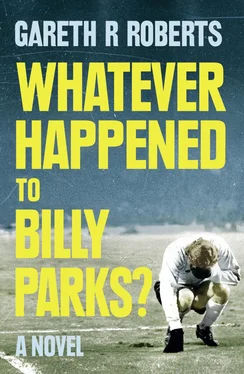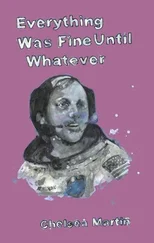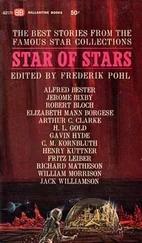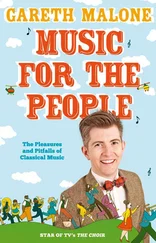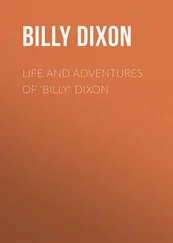I had known nothing else, but then I went to my cousins’ house in Dagenham and I discovered a wonderful truth: not all homes were like mine. I was six. I was six and I’d had my hair ruffled and smelled the feminine smell of my lovely smiling aunty. And now, like an addict, I wanted more of that, that wonderful life.
I feel guilty admitting that. I mean, my poor, poor bastard dad. It wasn’t his fault. He’d not always sat mute in the back kitchen. Once upon a time he and Mother had smiled and laughed too, once upon a bloody time he had held her and told her not to worry because he was only going there to ‘mend broken tanks, not to fight’. And she kissed him and pressed her breast against his chest and he had pulled his face away from hers so that he could see her and remember her, and as he looked at her he’d promised, ‘I’ll be fine, it’ll be just like being in Mile End’, and then he’d smiled his lovely smile with his twinkling blue eyes and joked, ‘Only hotter.’
That, I discovered, was 1941 as he left for Burma.
He was taken prisoner the next year and it was another five years until she saw him again. She saw him and she held him, but he never really returned to her. The poor bastard – the poor pair of bastards.
He had tried. Or so I’m told. He had gone back to the garage on Woodgate Road and a pint down The Albion and West Ham on a Saturday afternoon. He had bounced Carol on his knee and smiled because she adored him, and he’d got on with the task of blotting out the images of Burma and the camp at Thanbyuzayat and the corrugated iron shack with the waist-high ceiling that had been his jail and the rats and snakes and scorpions and the slow death brought on by malnutrition and the exhaustion of working day after day on that bloody railway, or the faster, better, death brought on by dysentery and malaria and typhoid.
He got on with the job of blotting out the images of his dead friends and of the camp guards with their sticks and their swords and the ‘Hellship’ home when the Americans accidentally torpedoed them, and the awful, overwhelming gut-wrenching feeling of guilt when he eventually reached home in 1946 and walked down what was left of our street, Scotland Street, in Stratford.
It was the guilt that did it.
At first he could block out the images. He could deal with the pain of loss. His body recovered, he put the weight back on, he was always an athletic man – but the guilt never left him. The guilt grew like a creeping winter shadow, placing everything into cold darkness. And once the guilt had gnawed at everything, stripped him bare, the images couldn’t be blotted out any more.
Even me, little Billy, born in December 1948 and loving him from the moment I first formed a memory, even I couldn’t stop the images that came to him each day: of his mate Eddie Hastings from Romford, who had been a postman – a postman, from Romford, he shouldn’t have been in bloody Burma building railways, he shouldn’t have died in my dad’s arms, incoherent with disease and weakness and thirst; and the big Colour Sergeant, Harry Green, who was executed, and how he had shouted out for his wife and his sons just before they decapitated him; and all the others, all the bloody others, who came to him every day and did their spectral dance around his poor suffering head.
I couldn’t take away those images. Not even when I held my little ball and looked up at him with the same twinkling blue eyes that he had once had.
‘Why are you sitting by the back door, Dad?’ I asked, and I curse myself now, because I know now that my presence, my question, my little bloody ball, would have just added to his guilt.
‘Will you play with me, Dad?’
‘I’m sorry, son, I’m tired. I’m so tired. Maybe tomorrow.’
My poor scared broken dad.
I would nod, disappointed. I wanted him to hold me and I know now, I’m sure now, that he wanted to hold me, but it wouldn’t happen. Ever. He would never play with me.
And as my father sat quietly and neatly waiting for the turmoil in his head to go away, the life was sapped from my mother.
During the war, she’d worked as a clerk for the east London General Omnibus Company keeping tidy ledgers to try to stop herself from worrying. She had worried though, of course she had, every day for five years. Worrying and fantasising and yearning for his twinkling blue eyes and his sandy hair and his lean athleticism and an end to the crushing weight of loneliness.
The man she yearned for never came home.
So she stayed lonely.
And the local women gathered around, because that was what they did round our way. And they helped her when she fell with me after one of the few times Billy Senior had come to her as a man, and they helped her when he stopped going to work, and they helped her when he woke every night crying. They told her that it was alright to have a couple of snifters of Mrs Ingle’s home-made gin from time to time.
But from time to time became every day, so they stopped gathering around.
I would be sent in the morning round to Mrs Ingle’s ( always go round the back, Billy ) with a coin in my trouser pocket and a note. And Mrs Ingle would ask me how me ma was and how me old man was and give me a flask and send me on my way. Your mother’s tonic, don’t drop it, don’t break it, get home straight away .
I broke it once. Only once. And that was on the day that I discovered football.
I always took the same route to Mrs Ingle’s: up our road, past the corner shop and the Nissen huts, through the lane that ran between Eric Road and Vernon Street and across the waste ground that had, until the Luftwaffe had bombed it into oblivion four years before I was born, been Singleton Street and Sharples Street. Now it was just a derelict piece of ground about the size of, well, the size of a football pitch.
On the day that I discovered football I crossed it on my way to Mrs Ingle’s just like I did most days. Then I went round the back of her house, just as I was told, knocked on the door and was met by Mr Ingle in his vest and braces chewing on a mouthful of thick brown bread. He looked at me witheringly and motioned for me to stay where I was. A little while later Mrs Ingle came to the back door – funny, recently our transactions had become more businesslike. She had stopped asking me about my parents; instead I would silently hand over the money and she would silently hand over the flask, we would exchange a knowing look and off I’d go.
This particular morning was no different. I took the flask and put it into the little brown paper bag, just as I was ordered, and started to walk back home. When I reached the waste ground at Singleton Street there was a football match going on. I knew a bit about football, not much, just bits and pieces I’d picked up from my cousins. What I did know though was that if the bigger boys were playing I would have to walk around the pitch or risk a cuff around the ear from some twelve-year-old psychopath.
Wisely, I started to walk around the makeshift pitch, skipping over the puddles that formed in the blast craters to make sure that I didn’t get my shoes wet. It was the last childish thing I would do because halfway around the pitch my life changed for ever.
‘Oi you, kid.’
I turned around to see an enormous nine-year-old shouting at me. Chris Cockle, his name was, a boy with thick arms and legs and a head of dark wavy hair. He wore his grey V-neck jumper taut across his chest like chainmail. I knew Chris Cockle, everyone knew Chris Cockle. He was a fearless slayer of any beast that crossed his path.
‘What?’ I said, trying to sound somehow more confident than I actually was – a trait that has got me out of countless good hidings over the years.
Читать дальше
